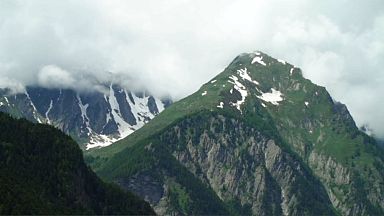Smart Regions takes a look at a European project that's providing vital medical and social support to the sick and isolated in Italy’s Aosta and France’s Tarentaise mountain regions.
Smart Regions takes a look at a European project that has come to the fore during the COVID-19 crisis through the provision of vital medical and social support to the sick and isolated in Italy’s Aosta and France’s Tarentaise mountain regions.
The clock is ticking for Europe’s mountain areas. Demographic change through economic migration and declining birth rates mean many hillside towns face slow motion decline. But an EU project in Italy's Aosta Valley region has come to the fore during the COVID-19 pandemic. The initiative seeks to protect vulnerable people living in mountain communities by providing health and social care.
 ADVERTISEMENT
ADVERTISEMENT
 ADVERTISEMENT
ADVERTISEMENT
At the height of the epidemic, nurses went from house to house to test and reassure patients. Valentina was one of them. In 2018, she left a permanent job in the UK to join what is known as the MisMi project.
“What particularly impressed me about MisMI was its innovative approach in terms of caring for chronic patients: keeping people within their families, in their communities and at home,” Valentina says.
The total budget of MisMi is just over 1.8 million euros - 1.5 million of which came from the European Union’s Cohesion Policy. Nearly 5000 people are thought to have already benefited directly.
In addition to covering Italy’s Aosta Valley region, the project also encompasses Tarentaise in the French Alps. Anna coordinates the cross-border project. For her, living in the mountains doesn't have to mean isolation.
"MisMi came about because of a real need. Living in the mountains should not mean being isolated or alone. That’s a problem, especially for those who have chronic diseases or those who are socially vulnerable and have no one to support or spend time with them,” she says.
Social aspect
In addition to providing medical care, the MisMi project is a social force for good. Mountain hiking is one of its most popular activities. More than six hundred people have benefited from the walks, which re-started in June.
Aida is a guide on the walks: “The facilitator’s role in this context is very important because it promotes interaction between participants, helps to collect and detect the needs that they have. Another important thing is we are also able to find formal and informal resources within the group.”
A COVID survivor, Claudio battled the virus for more than six weeks. For the 67-year-old, the walks have taken on a different dimension.
“Every day that I get now is an extra day of life. It is a day I appreciate, a day more beautiful than the others. Before the rain used to bother me, now it tells me that I have lived another day,” Claudio says.












